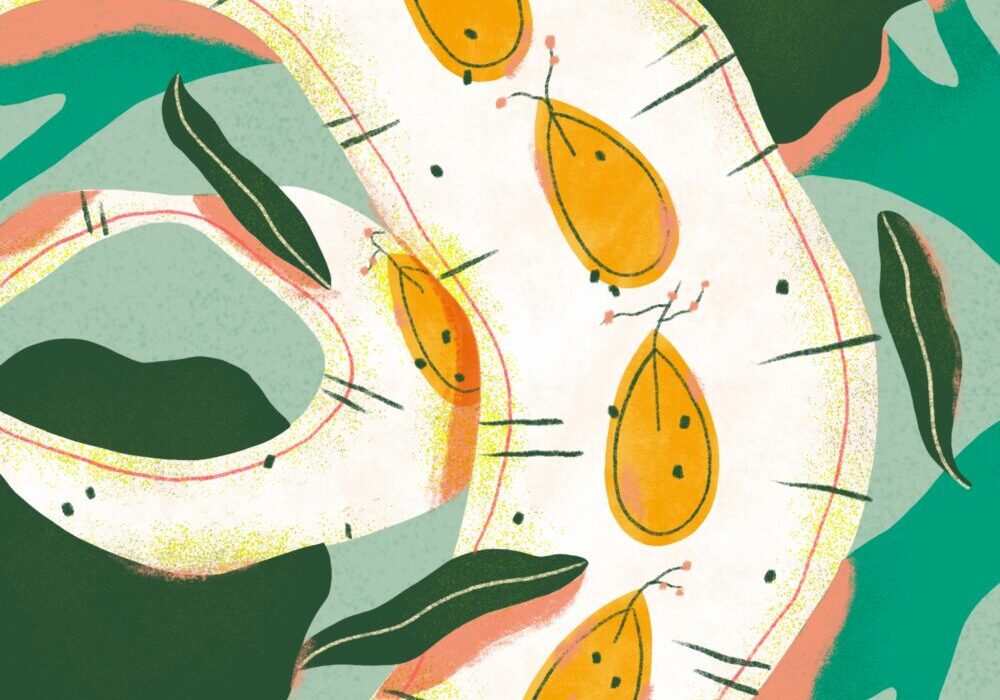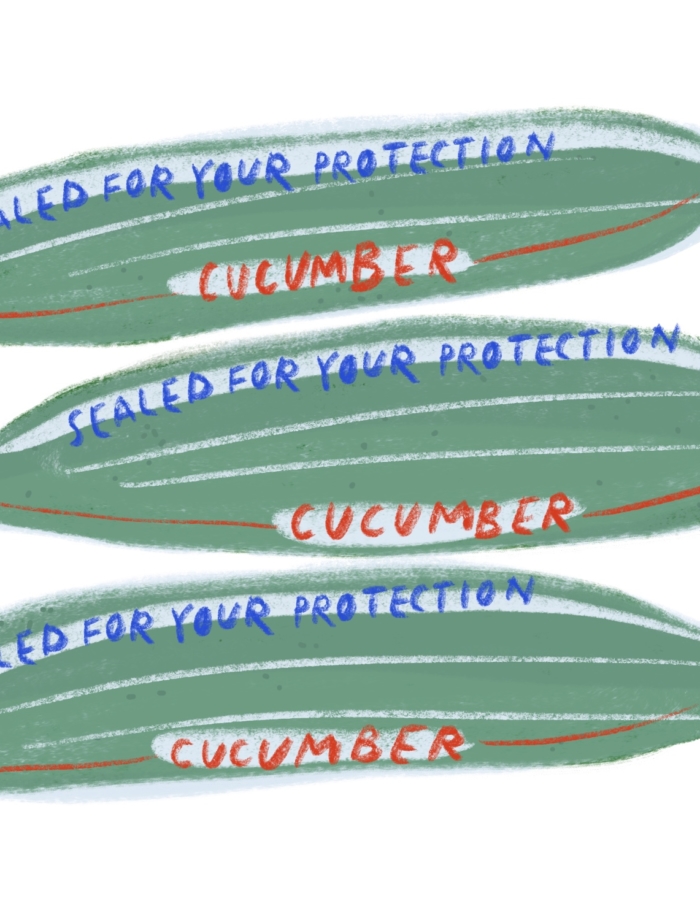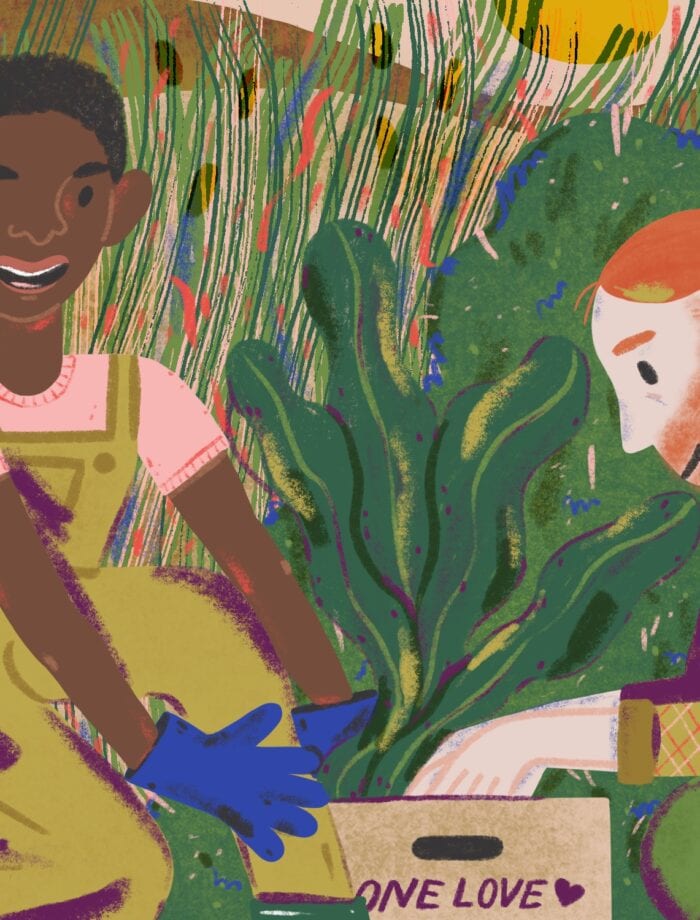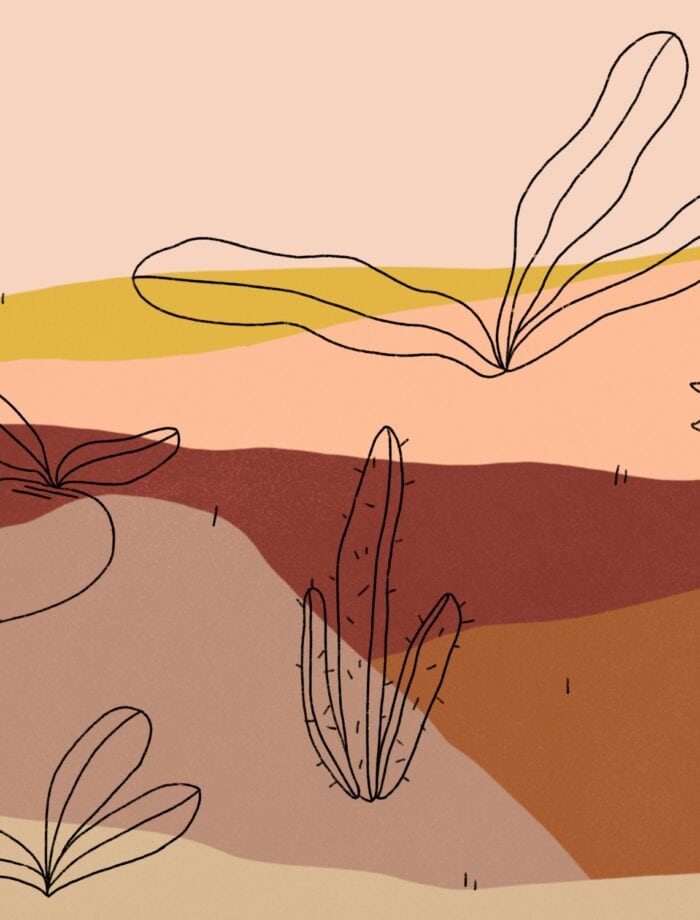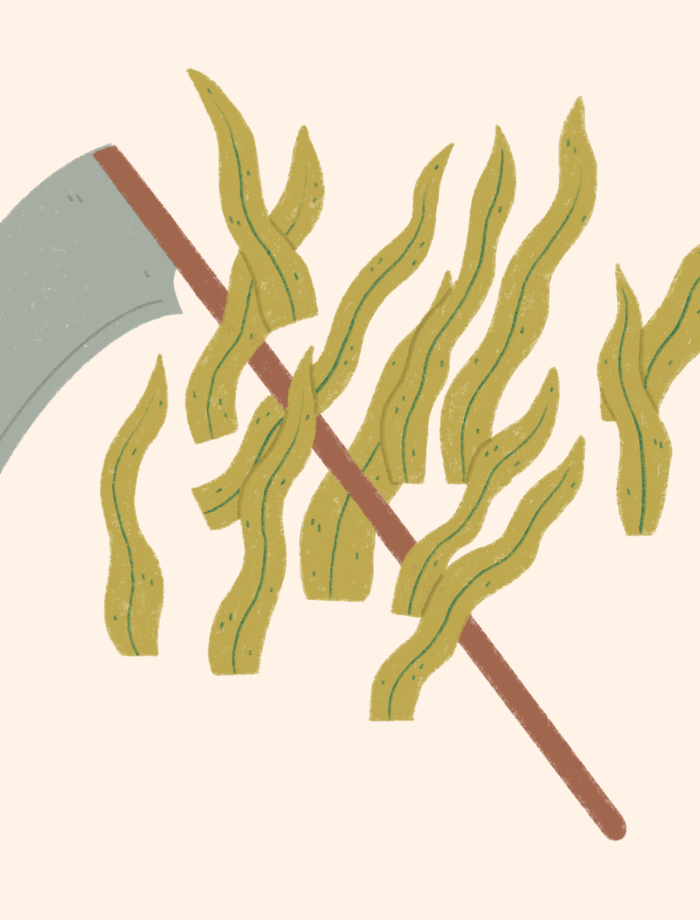Illustration by Hawnuh Lee.
I first learned about Granor Farm last spring when Abra Berens, a chef I’d admired, released her cookbook, Ruffage: A Practical Guide to Vegetables. The book functions as a manual for cooking directly from one’s garden, so imagine my thrill when I realized that the particular garden (or farm, in this case) Abra was harvesting from was just about 90 minutes away from me in Three Oaks, MI. Granor Farm is focused on cultivating sustainable food systems in the midwest and building community around locally grown food.
We are always looking to learn more about the future of farming at CLC, so I reached out to the lovely Katie Burdett, Granor’s farm manager, to ask if she could share her experience with us. We talked about how the Granor team has adapted throughout the pandemic, what organic farming means to them, and why it’s more important now than ever to support small local farms.
If you’re local, you can order Granor’s gorgeous produce online and pick it up curbside every Friday. If not, give @granorfarm a follow on Instagram and imagine you’re nestled into winter greens like this frost-kissed head of broccoli.
Tell me about what you do at Granor Farm?
This is my sixth season here, and my role has definitely evolved throughout that time. In the past I was more hands-on in the field, and as our acreage expands we’ve been able to bring folks in to take on programming. Now I would describe my role more as ‘command central’ — kind of overseeing all the different programming. And occasionally I do still hop on the tractor.
How did the farm get started?
Granor was founded in 2006, it actually began with the idea to start a farm camp for children and we still offer kids summer sessions. Vegetable production began in 2007 and the farm has continued to expand since then. We started with just 10 acres, and now we’re up to 350 acres that we either own or lease — most of that is growing grains. We are a Certified Organic farm, so any land that isn’t currently certified is transitioning.
Our central mission is to make sure we’re taking care of the soil.
We have our on-site farmstand and CSA (Community Supported Agriculture) program, which has also continued to grow over the years. We’ve sold at farmers markets and organized our CSA in a few different ways, but this year, we decided to focus on having people come directly to the farm. In the past, we’ve been able to be very transparent, where people can walk through the fields and see what’s growing, talk to the farmers that are working, and get a sense of what small scale agriculture looks like. Of course now with COVID, our fields have to be closed to protect our workers and customers.
Can you tell me more about the philosophy behind how you grow food at Granor?
The central mission is to make sure that we’re taking care of the soil and trying to reduce greenhouse gas emissions. A lot of people have varying views on the Organic Certification itself — whether it’s worthwhile or not. What it looks like for us is basically a stack of paperwork to complete over the winter, and there’s a small fee associated with it. As a side note, certain states have the Organic Certification Cost Share Program, so you can apply and have a portion of your fees reimbursed.
Pretty much everything from seed to harvest can get audited at any time. Generally, that’s a once a year audit for us. But if someone wanted to stop by and ask to see all of our records, that’s definitely on the table as well. They look at all of our seed receipts, ask us how we’re cleaning our equipment, what our soil management program looks like, how we’re dealing with pests… We decided to get certified because it keeps us accountable for those best practices, and it’s an opportunity for customers to see how much thought and time has been put in to produce this food.
We’re more than willing to take a loss on a rotation for a year to be able to grow food on that soil later.
In terms of soil management, we have an overarching philosophy that we want to leave the land better than we found it. We’ve implemented different techniques like cover cropping, minimal tillage, and adding compost to build up the soil over time. That’s especially true on land that was previously conventionally farmed — some of those areas need a lot of work. Sometimes that requires us to plant cover crops that don’t actually get harvested on land that we’re paying a lease on, just for the purpose of building soil. But we’re more than willing to take a loss on a rotation for that year to be able to grow food on that soil later.
All that said, if a small farm decides not to go the certification route, but is transparent and able to talk to their customer base about their practices, I think that’s great as well. We need all of it.
What changes have you noticed or experienced with all of the unforeseen difficulties of 2020?
Through this pandemic, we’re seeing larger food supply chains breaking down because they’re completely inflexible and can’t be nimble. It takes a lot to figure out what to do with billions of pounds of produce or grains or whathaveyou that you’ve suddenly lost the market for. So I think it will be interesting to see how things shift after this.
In terms of what we’re experiencing at Granor — we’ve had an overwhelming response. There’ve been lines an hour before we even open the farmstand, and we get emails every single day about the CSA. I think that this has been a moment where people are paying more careful attention to what they’re eating, and it’s been heartwarming to see so many people reaching out to small local farms and asking how they can help make sure they survive.
I think that people are also realizing the value of having access to food — not taking it for granted that you can just pop into the supermarket at any time.
Can you tell me more about how the CSA and farmstand work?
We’ve been thinking a lot about what the motivations are for people to join the CSA program this year. We want people to be able to come to the farm and really invest in it and say, ‘I’m going to stick with you.’ When a certain crop does well they’ll reap the benefit of that. And if there are no tomatoes because of an early frost or something, they understand why because they can come right to the farm and talk to somebody about it.
We really value the in person connection that we get when people come directly to the farm, and I think that the ability for people to see the fields and talk to farmers is so important.
This year the actual purchasing has gone online, and we expanded our farmstand to include local products in addition to Granor produce. It felt important to us to support our agricultural community that way because so many people have lost revenue streams, especially with restaurants closing. We’re seeing farms rethinking how they’re going to sell things and we want to help them do that.
People are realizing the value of having access to food — not taking it for granted that you can just pop into the supermarket at any time.
In the past, CSA members were able to choose what they wanted market style — where you just show up and choose from whatever we had available. This year because of COVID, and since we have more members and a bit of a parking problem, we decided to prepare a farmer’s choice box. Customers can swing by and get their box curbside, and then midweek if they want extra things they can pre-order online. We’ve never thought about doing it this way before, but I feel like it’s our responsibility to feed as many people as possible right now and that seemed like the best way forward.
Your farm dinner program with Abra Berens was put on hold this year, but can you talk about how that was done in the past and what we can hopefully look forward to in the future?
Abra is our chef at the farm, and we started the dining program with her in 2017. The idea, again, was to connect people with the food and with the farm. We take people on a farm tour when they arrive. We show them the fields and talk about our growing practices, and then we bring them into our farmhouse where Abra serves this multicourse family style meal. You might get seated next to somebody that you don’t know or you might be with friends, and Abra always starts by talking about what we’re featuring in the dinner and why.
Michigan is the second most agriculturally diverse state in the U.S. after California, which is interesting because we think of everything growing all the time in California, and you might not suspect that Michigan would be right behind that. But there’s a lot here — tons of wine and berries, and so many small scale farms that are doing really cool things.
Sometimes the meal is made entirely with produce from our farm, but more often it’s supplemented by things we don’t grow. We’ll bring in one of the local farmers we work with to talk about their growing practices and answer questions. We love that aspect because it allows our whole agricultural community to come together.
We’re not sure when it will be safe and responsible for us to reopen the dinners again, but we’re looking forward to whenever that happens.
Thank you so much Katie! We are grateful that folx like you are paving the way for a more sustainable and equitable food system.
